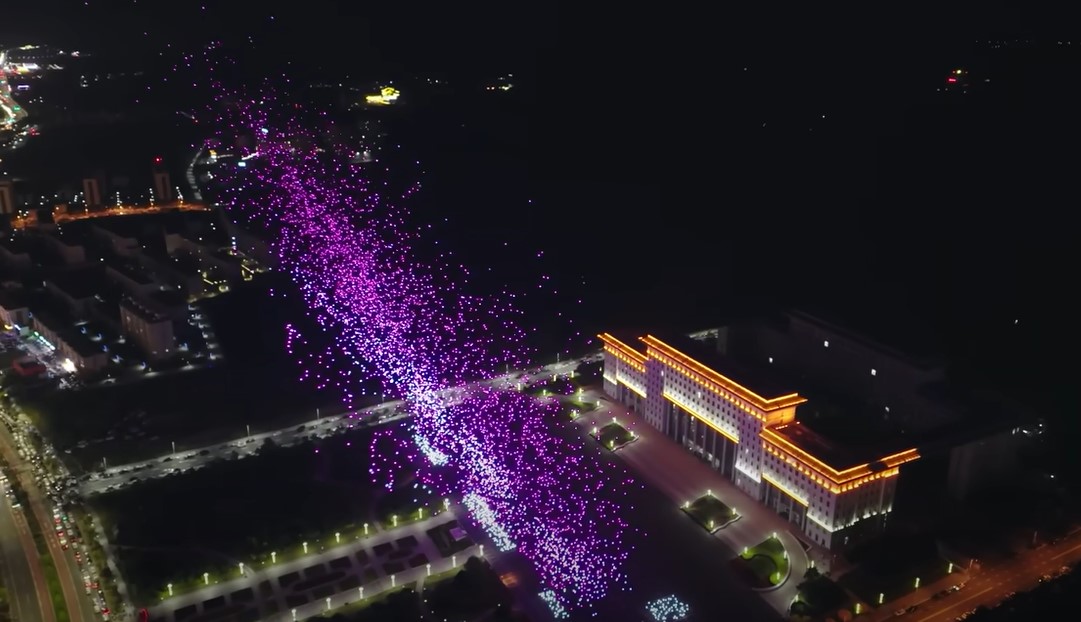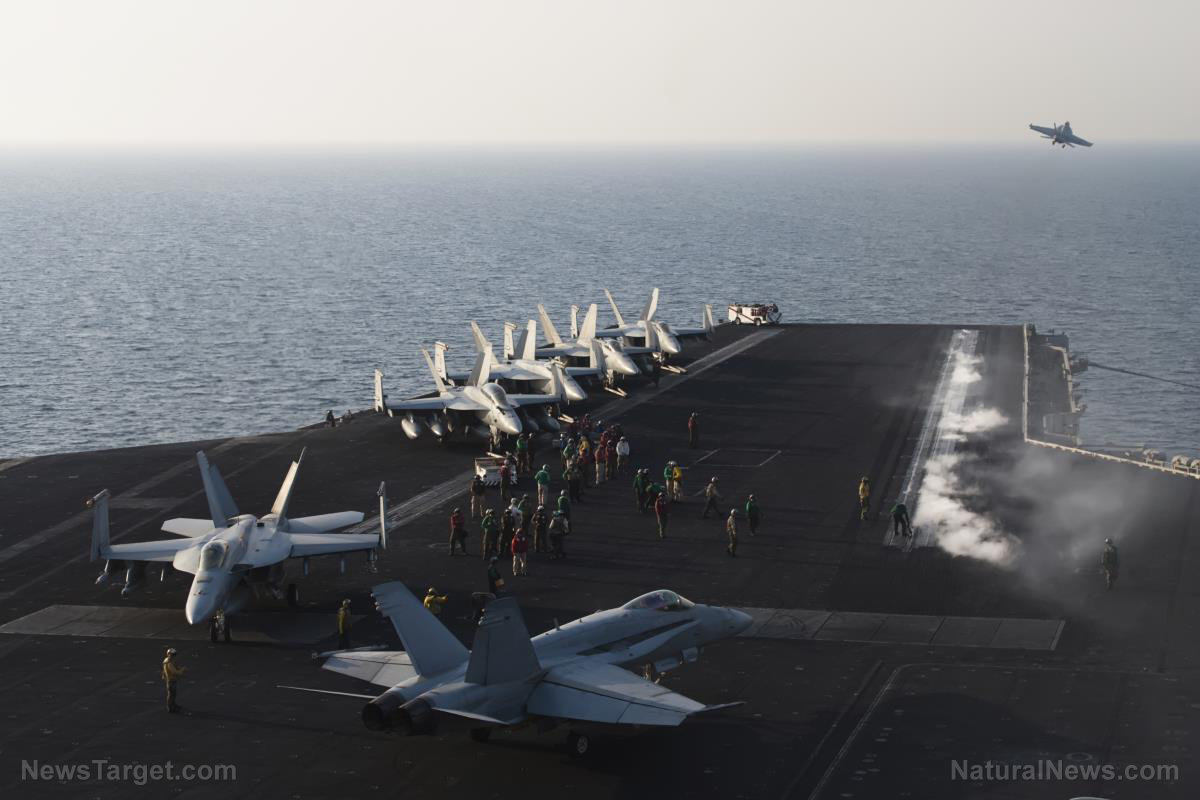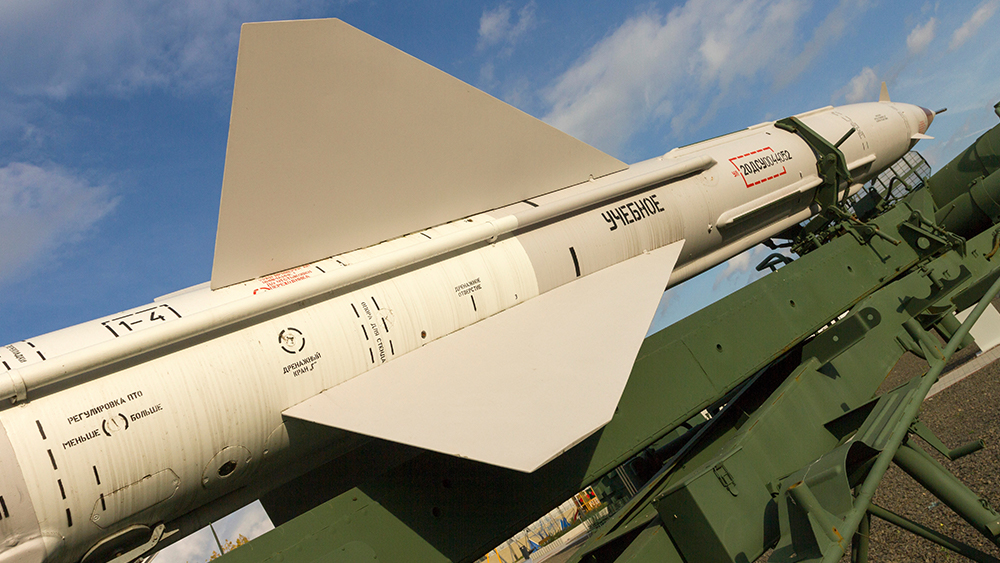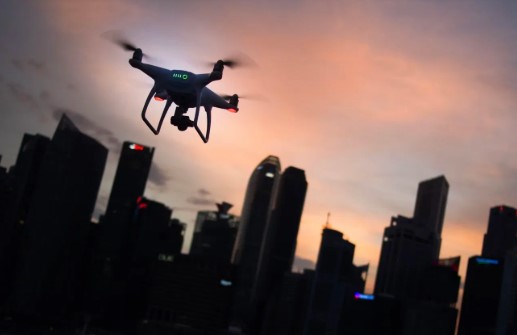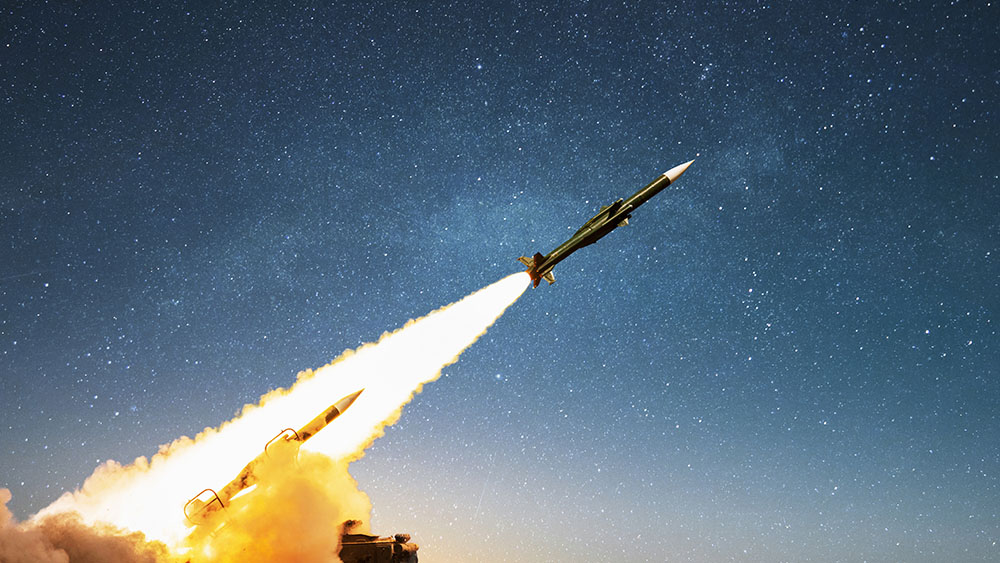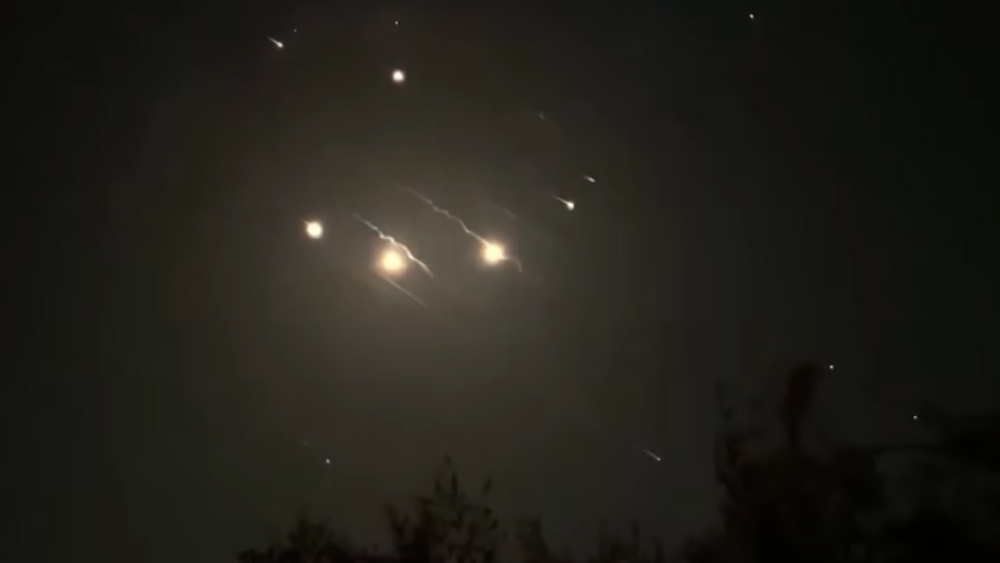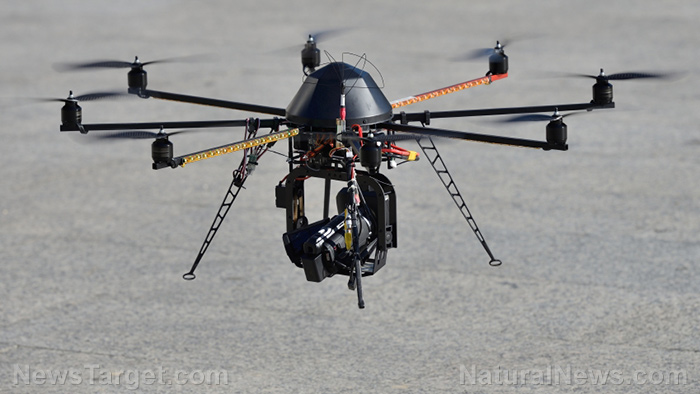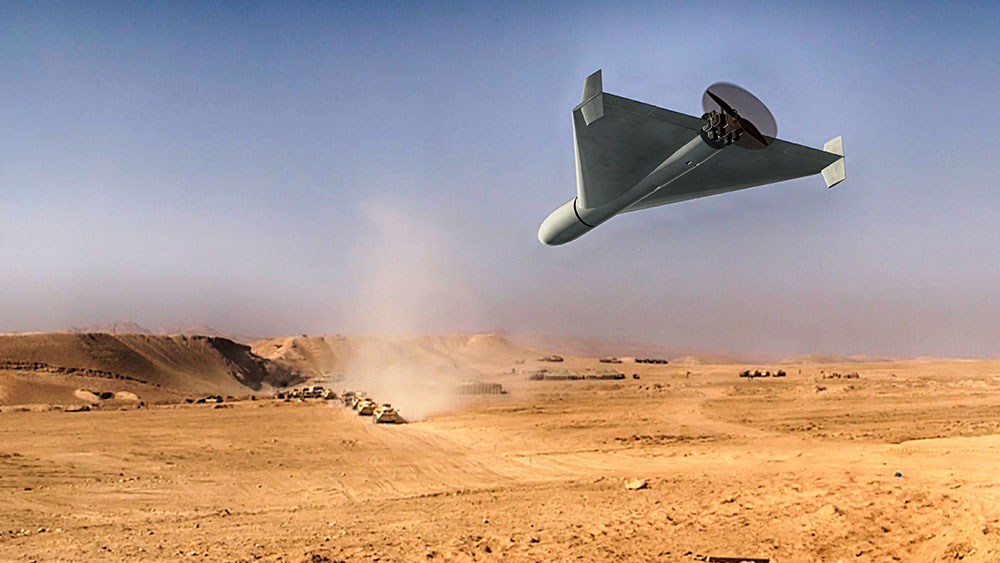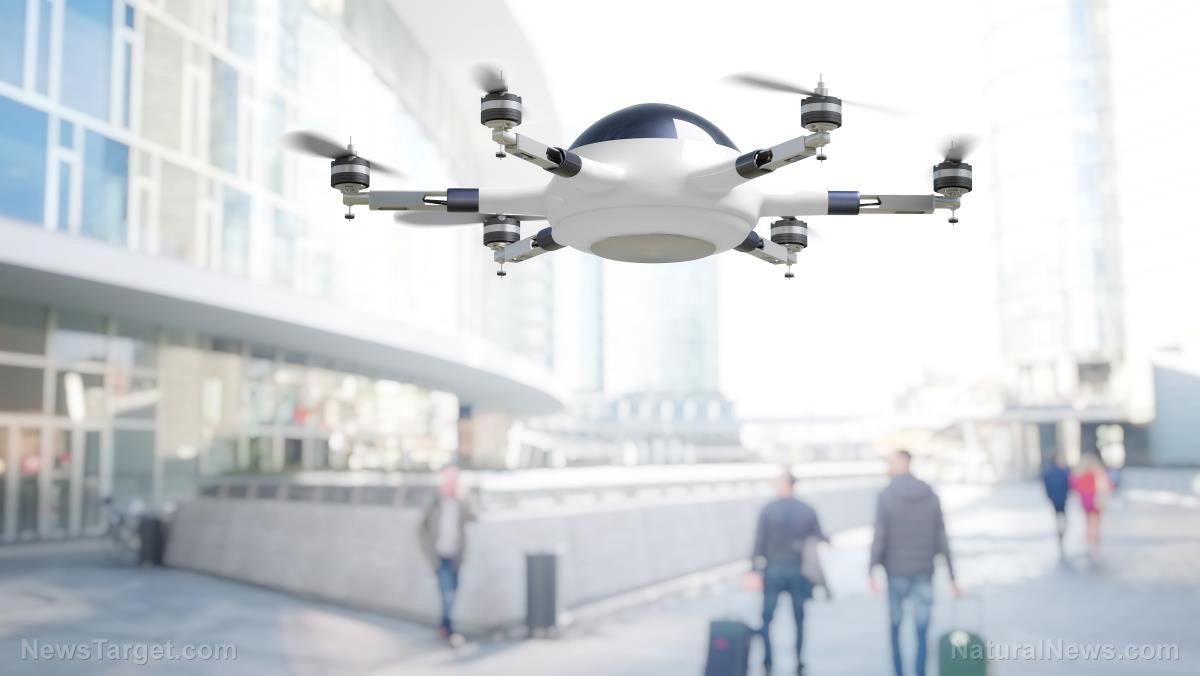Hypersonic threat: Houthi missile overwhelms Israel’s defense, raising alarms across the region
12/23/2024 / By Willow Tohi
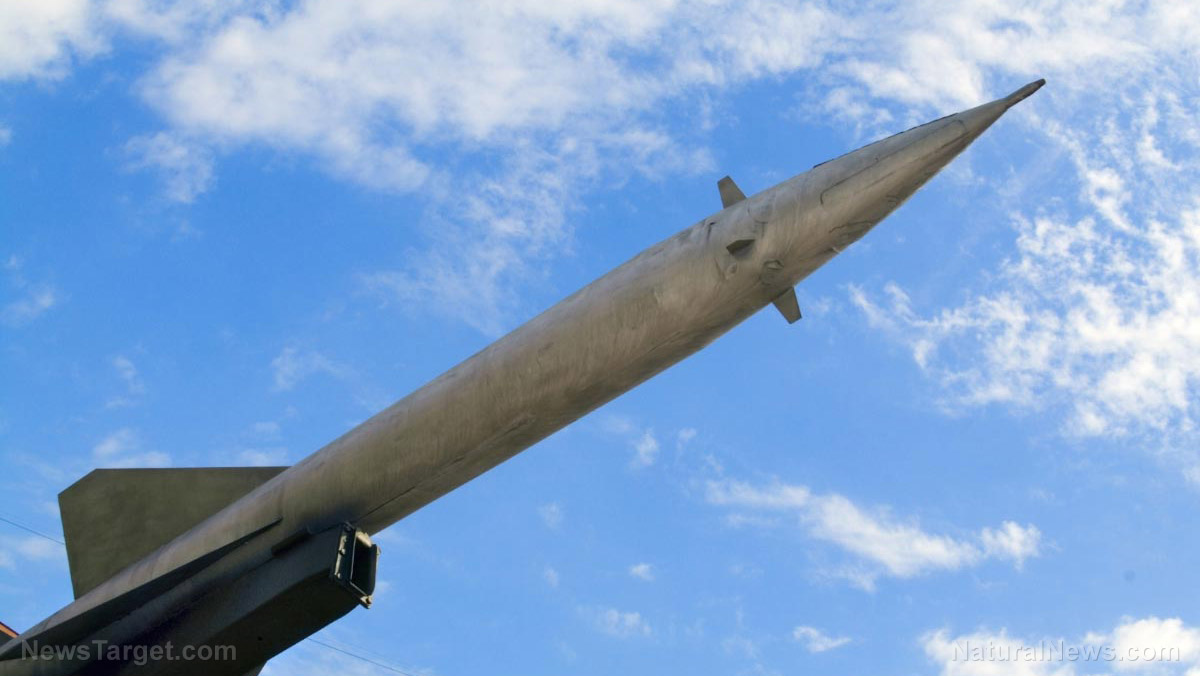
- Houthi Hypersonic Missile Attack on Tel Aviv: Yemen’s Houthi rebels launched a hypersonic missile, “Palestine 2,” striking the Tel Aviv area and injuring 16 civilians, marking a significant escalation in regional tensions.
- Iron Dome Defense Failure: The attack demonstrated the Houthi’s ability to penetrate Israel’s Iron Dome system, highlighting the challenges posed by hypersonic weapons, which can travel at speeds exceeding Mach 5 and evade traditional defenses.
- Regional Alignment and Retaliation: The Houthi strike followed Israeli airstrikes in Gaza, killing 25, and was praised by Hamas, signaling growing alignment among Iran-backed groups like Hezbollah and the Houthis against Israel.
- Humanitarian and Security Crisis: The conflict has escalated with over 45,000 Palestinians killed in Gaza, Israeli operations expanding to Lebanon, and Houthi attacks targeting Israeli allies in the Red Sea, raising fears of a broader regional war.
- Implications of Hypersonic Technology: The use of hypersonic missiles by non-state actors like the Houthis raises concerns about the future of warfare and potential destabilization in the Middle East, with questions looming about the possibility of a larger conflict.
In a dramatic escalation of regional tensions, Yemen’s Houthi rebels launched a hypersonic missile that struck the Tel Aviv area early Saturday morning, leaving sixteen civilians lightly injured and sparking widespread concern over the growing threat posed by advanced weaponry. This marks the second such attack in days, as the Iranian-backed Houthis continue to demonstrate their ability to penetrate Israel’s vaunted Iron Dome defense system.
The missile, dubbed “Palestine 2,” targeted a military site in the Jaffa region, according to Houthi military spokesman Yahya Saree. In a statement, Saree claimed the missile struck its target with precision, rendering Israel’s interception systems ineffective. The attack, he said, was part of the “promised conquest and holy jihad,” and a response to Israeli military actions in Gaza and Yemen.
Footage circulating on social media showed the missile evading Iron Dome interceptions, both above and below the atmosphere. Israeli authorities confirmed that the missile’s remnants caused significant property damage and injured civilians, primarily from shattered glass. Emergency services treated sixteen individuals for minor injuries and seven others for anxiety-related symptoms.
The Houthi strike comes on the heels of Israeli airstrikes in Gaza that killed at least 25 people on Friday, raising the possibility that the missile attack was a retaliatory measure. This week alone, the Houthis have launched multiple hypersonic missiles targeting Israeli military sites, signaling a new phase in the ongoing conflict.
Next gen weapons are a game changer
The use of hypersonic technology has profound implications for regional security. As Elon Musk noted on X last month, “Future wars are all about drones & hypersonic missiles.” The inability of Israel’s Iron Dome to intercept the Houthi missile underscores the challenges posed by these ultra-fast, maneuverable weapons, which can travel at speeds exceeding Mach 5 and evade traditional defense systems.
Hamas, the Palestinian militant group, praised the Houthi attack, calling it a “genuine stance” in support of the Palestinian cause. The statement highlighted the growing alignment between Iran-backed groups across the Middle East, including Hezbollah in Lebanon and the Houthis in Yemen. This coalition has intensified its attacks on Israel since the conflict in Gaza escalated in October 2023.
The humanitarian toll of the conflict continues to rise, with over 45,000 Palestinians killed in Gaza since the war began. Israeli operations have expanded to Lebanon, targeting Hezbollah forces, while the Houthis have also targeted Israeli allies in the Red Sea and Gulf of Aden. The widening scope of the conflict has drawn in multiple actors, raising fears of a broader regional war.
Israeli officials are now grappling with the implications of these developments. The failure to intercept the Houthi missile has raised questions about the effectiveness of Israel’s air defense systems against advanced threats like hypersonic weapons. The Israel Air Force is reportedly investigating the incident, with experts examining missile remnants to determine their origin and capabilities.
The attack on Tel Aviv, a city rarely targeted directly, underscores the vulnerability of Israel’s commercial and diplomatic center. The use of hypersonic missiles by the Houthis marks a significant escalation in the ongoing conflict, posing a new and formidable challenge to Israel’s security infrastructure.
As tensions continue to escalate, the international community is left to ponder the implications of these developments. The use of hypersonic technology by non-state actors like the Houthis raises alarming questions about the future of warfare and the potential for further destabilization in the Middle East. The question of whether “World War III is already here” looms large, as the region teeters on the brink of a broader, more dangerous conflict.
Sources include:
Submit a correction >>
Tagged Under:
air defense systems, chaos, collapse, dangerous, fallout, genocide, Houthis, humanitarian, hypersonic missile, hypersonic weapons, Israel collapse, military technology, miltary tech, violence, weapons tech, weapons technology, WWIII
This article may contain statements that reflect the opinion of the author
RECENT NEWS & ARTICLES
COPYRIGHT © 2018 MILITARYTECHNOLOGY.NEWS
All content posted on this site is protected under Free Speech. MilitaryTechnology.news is not responsible for content written by contributing authors. The information on this site is provided for educational and entertainment purposes only. It is not intended as a substitute for professional advice of any kind. MilitaryTechnology.news assumes no responsibility for the use or misuse of this material. All trademarks, registered trademarks and service marks mentioned on this site are the property of their respective owners.

